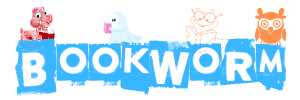A Global Perspective on English Literature in Higher Education: Innovative Approaches and Recent Trends
While liberal studies, literature, and social sciences are often criticised (for many obvious reasons), what still needs to be appreciated? With the ongoing protests for Palestinian ‘rights’ and, perhaps, mutating itself into tacit (and apparent, at times) alignment with Hamas, the terror outfit, people are criticising subjects like gender studies, liberal studies, literature and many others in the same line. I don’t support violence. I don’t support idiocy. I stand for freedom of expression. I do stand for those who often find themselves as the practice pots of the lunatic practice of freedom of expression.
However, it is not an article about freedom of expression, a satire on Hamas, or a piece ridiculing the absurdity inherent in liberal studies. I am writing to add hope to the hearts of the hopefuls who, like me, appreciate studying and teaching literature. So, what has changed? How are students and professors striving to make the academic discourse on English literature more helpful, productive and better? Let’s discuss it! But first, let us have some introduction.
In the ever-evolving landscape of academia, English literature remains a cornerstone subject in colleges and universities worldwide. With the advent of technology and a globalised world, the study of literature is undergoing a significant transformation. Here are some of the latest updates and trends in the academic world of English literature.
1. Interdisciplinary Studies: Colleges and universities increasingly adopt an interdisciplinary approach to studying English literature. This method integrates literature with other disciplines, such as history, philosophy, psychology, and even STEM fields. For example, at Harvard University, the English department offers courses that explore the intersection of literature and science, such as “Literature and Medicine” and “Science Fiction and Technological Imagination.”
2. Digital Humanities: The digital age has created a new subfield known as digital humanities. This field uses computational methods to analyse and interpret texts, historical records, and other cultural artefacts. For instance, the University of Virginia’s Institute for Advanced Technology in the Humanities is at the forefront of this movement, developing innovative digital tools and projects to enhance literature study.
3. Global Perspectives: There is a growing emphasis on incorporating global perspectives into the study of English literature. This shift recognises the importance of diverse voices and experiences in shaping literary traditions. At Oxford University, the English Faculty offers courses that explore world literature in English, such as “Global South: Contemporary Literature and Culture” and “Postcolonial Literature.”
4. Public Engagement: Many institutions encourage students to engage with the public through their studies. It can involve working with local communities, participating in public events, or using social media to share their research. The University of Nottingham’s Centre for Regional Literature and Culture is a prime example, hosting various public events and projects to promote the study of literature and its relevance to everyday life.
5. Creative Writing: Creative writing is becoming an increasingly popular component of English literature programs. It allows students to not only study literature but also to create their own works. For example, the University of Iowa’s renowned Writers’ Workshop offers a two-year residency program for aspiring writers, allowing them to hone their craft under the guidance of established authors.
6. Diversity and Inclusion: Universities and colleges strive to make their English literature programs more inclusive and diverse. It includes diversifying the authors and texts studied and creating a more welcoming and supportive environment for students from diverse backgrounds. For instance, the University of California, Berkeley’s English department has implemented a Diversity, Equity, and Inclusion (DEI) Action Plan to increase representation and foster a sense of belonging for all students. Well, there is a lot of criticism of this DEI practice. And, to be frank, the USA has to develop some measures to ensure the increasing stick of DEI doesn’t create an entirely new lot of the pariahs or the excluded!
One has to agree that the teaching of literature has evolved significantly over the years, moving away from the traditional approach of categorising authors and works as “great” or “mediocre.” This shift is driven by recognising literature’s diverse and multifaceted nature and the need to engage students more holistically and critically. One of the critical developments in literary education is the adoption of a more interdisciplinary approach. This involves integrating literature study with other disciplines such as history, philosophy, psychology, and STEM. For example, a course might explore the social and political contexts in which a work was written or analyse the psychological motivations of a character. This approach encourages students to understand better the text and its broader implications rather than simply judging its quality. Another significant trend is using technology and digital tools in literature studies. This can involve using digital archives to explore historical texts, using data analysis to study patterns in a corpus of works, or using multimedia to present and analyse texts. This approach makes the literature study more engaging and interactive. It equips students with valuable digital skills that are increasingly important in today’s job market.
Eventually, I hope that the teaching of literature has moved beyond the binary judgments of “great” and “mediocre” to embrace a more nuanced and interdisciplinary approach. This enhances students’ understanding of literature and helps develop their critical thinking, creativity, and digital literacy.
In conclusion, the academic world of English literature is embracing innovation and change, reflecting the broader shifts in society and technology. As these trends continue to evolve, they promise to enrich the study of literature and provide students with a deeper understanding of the world around them.
Suraj for BookWorm Reviews

